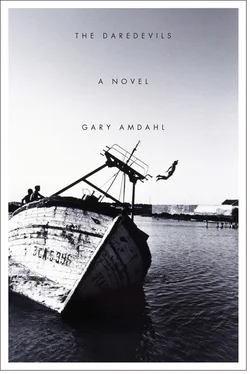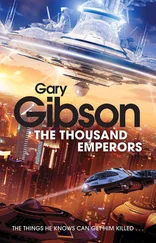Once they got Charles outside, he wrenched himself free of Joe the Young Wobbly’s grip and said, “Forgot to pay.” He went back inside and slammed a dollar on the bar, took the bottle, and stalked out.
A letter from Alexander was waiting for him at the Detroit Lakes Hotel.
“Dearest brother, this is the saddest moment of my life. I am sobbing my eyes out every time I try to write another word. I was able to speak by telephone to Andrew and Amelia and Tom and Gus and Tony. Or rather, spoke to Andrew, who spoke to the others, as I was unable to speak once I told him what had happened. The telephone is such a strange machine: I spoke calmly and coolly, like the diplomat I truly am, not believing it was Andrew on the other end, not believing, somehow, that anyone was really there, that it was some kind of trick. But when he started to talk, I could hear his confusion and anguish, I could hear my brother, and I broke down. Couldn’t go on. Mother does not know, as everyone agrees that a telegram will not do in these wretched circumstances.”
Mother, thought Charles, most certainly knows. What in the world is Al going on about?
“Everywhere I go,” Alexander’s letter continued, “everything I do, I think of him. I see him. I don’t mean I see a ghost. I see with something other than my eyes. But I see. It’s not memory, and it’s not imagination, and it’s not a ghost. I don’t understand, dear brother, I just do not understand. I have lived a good life. I am a strong, capable, intelligent, resourceful, sympathetic man. And I became that man largely because that was the kind of man Father was. I never lose my temper but everyone knows that the metaphorical revolvers I wear strapped to my hips are loaded and if I draw them I shoot them and if I shoot them I hit what I’m aiming at. I learned that from Father — and there! I managed that highly ironic statement not with tears but with laughter! Ha! I feel nearly as hysterical as Amelia! And let me tell you, Chick, I understand all that so-called hysteria that we heaped at poor Amelia’s feet. She just saw all this sooner than we did. In your way too: you saw this coming. I spent a lot of time being angry at you and embarrassed by Amelia because you, I don’t know, you didn’t seem to think we had any right to be who we were, as a family, as people, as a particularly powerful and interesting group of people and as solid individuals. We are — we were — cool-headed and clean-handed people. We loved beauty and we understood the ugliness of politics. We loved God and worked to make the world a better place! We were Ideal Citizens! Why do I feel so ashamed when I write those words now? Why couldn’t we take some pride in how handsome we looked in the trappings of wealth and power that God gave us and of which we were, merely and happily and always, the modest stewards? Why did we have to renounce ordinary human friendships — all of us, even you! Surely we had the right to the consciousness of our gifts, our capacities, our skills, our wills? You will forgive me, Chick old man, for going on like this, because this is something like the conversation Father and I were having the day before he was to get on the train to come to you — the night, rather. It was a conversation that went deep into the night, long after men like he and I should have been in bed, sleeping soundly. He was uncharacteristically ironic about his role as a Regenerator: I shoveled Chinatown into the bay because the Chinese were nothing but garbage to me. I put a Jew in prison because Jews aren’t Christians. When TR was shot in Michigan I gave not a thought to murder and the insanity that drives people to it but condemned labor unions instead. I imagined that if he’d been in California, Andrew would have been standing next to him and might have taken the bullet for him and I am the basest of hypocrites not simply because I blamed labor unions for this danger but because I knew, I have known all along, that Andrew could not have been easily and swiftly replaced. And if I make it to Minnesota I am going to beg Charles to do anything but go to the front because a war is no place for a Christian and I want him to live a long and happy life .”
It was Wisconsin, thought Charles, not Michigan. Milwaukee. Noting that he had neither initiated the thought nor welcomed it, and did not approve of its appearance in his mind once it had endured sufficiently to make a kind of stamp, a mere nitpicking correction in the middle of what was clearly the cry of a rent heart, he wondered if one’s thoughts were ever truly one’s own. If not, who’s were they? What were they? And of what possible use to him when one fine day a thought might not just be tracer fire of action passed and action to come, but somehow truly matter?
“I of course,” continued Alexander’s letter, “asked him why he said ‘if I make it to Minnesota,’ and he said he was not feeling well. We had only one lamp burning in the little room so it was hard to see his face. He spoke of the Spring Park disaster and I couldn’t see his face. He sounded as if that burden was lying very heavily on him — and of course you know that he never felt a burden to be heavy. Never. But I couldn’t see his face. The lamplight was so weak and flickering that the shadows played tricks with me. He was uncharacteristically cold as well, all wrapped up in his chair with a blanket. He began to go on and uncharacteristically on about how guilty and wretched he felt about his ‘profligacy’ during the hey-day of the Poodle Dog. He laughed loudly and bitterly about how he had thought that a man of power actually deserved that kind of pleasure, that kind of relief. After a while, a long while, he seemed to have emptied himself out. He sounded calm, maybe resigned to something he didn’t like, but calm, empty in a good way. I said I would go get some fresh air. I wanted a very big drink, which I had, and went for a walk to the park. When I came back he was still sitting in his chair in the darkness but I could smell the gun smoke. I don’t understand how it could have happened, in that place at that time. I left him very much himself, if exhausted, and returned to. nothing. He was gone. It doesn’t seem real. His absence doesn’t seem real. The world doesn’t seem real without him. I disbelieve the world that doesn’t have him in it. Even if I accept the facts — even if I hear Father saying what he always said and which I had no trouble ‘believing’ or using as a creed — I don’t believe it, I don’t profess it. I don’t know how I could ever have been so deluded as that.”
Charles paused over the breakdown of the grammar and noted too the breakdown of the handwriting: it had become sloppier but pressed deeper into the paper, and strokes that should have been graceful were jagged. He could feel his own hand cramping. There were smears and spills of ink now too, on this last page. He thought helplessly of something Strindberg had written, probably in his Paris diary, or his chemistry notes, or Inferno, or the Occult Diary .? Hands burned by chemicals, wounds into which was spilled salt, or rather coke dust. “He testified this solemn truth, by frenzy desolated, Nor man nor nature satisfies whom only God created.” That was not Strindberg, was it? No, that was somebody else. Who had nothing to do with Strindberg? Probably not. The blackened and cracked hands, burned and deformed, crusted over as if by a process of smelting with black dead blood. they will never be clean, my apparatus is insufficient, I need money! Oh, Father, I wanted to introduce you to Strindberg. I wanted you to put him next to Teddy so I could say, here is a man who lived a strenuous life that wasn’t handed to him on a silver platter, and here is a man who grieved what was lost, who saw that it could not be replaced, who believed in your God but who saw that life was an illusion.
Читать дальше












